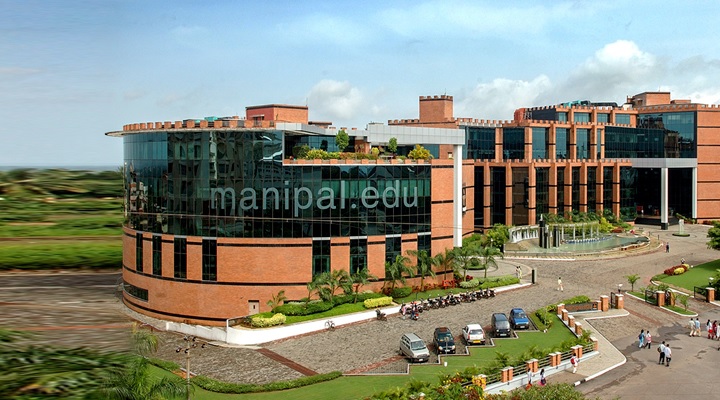MIT Manipal Entrance Test (MET) 2022 B.Tech Syllabus
Organisation : Manipal Institute of Technology (MIT)
Exam Name : Manipal Entrance Test (MET) 2022
Announcement : MET 2022 Syllabus
Program : B.Tech
Website : https://manipal.edu/mu/admission/indian-students/online-entrance-exam-overview/test-pattern.html
What is Manipal Entrance Test?
Manipal Entrance Test (MET) 2022 will be a common entrance test for admission to the B.Tech programs offered by Manipal Institute of Technology (MAHE Manipal), Sikkim Manipal Institute of Technology (SMU Sikkim), Manipal University (MU) Jaipur and Manipal Institute of Technology Bengaluru (MAHE Manipal). The entrance examination will be followed by a online BTech Common Counseling Process for MET rank holders.
Related / Similar Syllabus : MIT Manipal Entrance Test (MET) 2022 M.Tech Syllabus

Syllbus For MET B.Tech
Manipal Entrance Test (MET) 2022 Mathematics Sullabus
Sets and Functions:
Sets and their representations, The empty set, Finite and infinite sets, Equal sets, Subsets, Power set, Universal set, Venn Diagrams, Operation on Sets, Complement of a set, Union and intersection of two sets, Relations and Functions: Cartesian product of sets, relations and functions, Trigonometric Functions: Angles, Trigonometric functions, Trigonometric functions of sum and difference of two angles and trigonometric equations.
Algebra:
Mathematical Induction:
Motivation, Principle of mathematical induction, Numbers and Quadratic Equations: Complex numbers, Algebra of complex numbers, The modulus and the conjugate of a complex number, Argand plane and polar representation and
Quadratic equations, Linear Inequalities:
Inequalities, Algebraic solutions of linear inequalities, graphical solution and solution of system of linear inequalities in two variables, Permutations and Combinations: Permutations and Combinations, Derivation of formulae and their connections, Binomial Theorem: Binomial theorem for positive integral indices, General and middle terms, Applications, Sequence and Series: Sequences, Series, Arithmetic progression, Geometric progression, Relationship between AM and GM, sum to n terms of special series, Matrices: Matrix, types, operations, Transpose, Symmetric and skew symmetric matrices, elementary operation, Invertible matrices, Determinants: Properties, Area of a triangle, minors and cofactors, Adjoint and inverse of a matrix, applications
Coordinate Geometry:
Straight Lines:
Slope of a line, Various forms of the equation of a line, General equation of a line, Distance of a point from a line, Conic
Sections:
Section of a cone, Circle, Parabola, Ellipse, Hyperbola, Introduction to Three-dimensional Geometry: Coordinate axes and coordinate planes in three-dimensional space, Coordinates of a point in space, Distance between two points, Section formula
Calculus:
Limits and Derivatives: Intuitive idea of derivatives, Limits of trigonometric functions, Derivatives, Continuity and Differentiability: Exponential and logarithmic functions, logarithmic differentiation, Derivatives of functions in parametric forms, Second order derivative, Mean value theorem, Applications of Derivatives: Rate of change of quantities, Increasing and decreasing functions, Tangents and normals, Approximations, Maxima and Minima, Integrals and their Application: Integration, methods of integration, Integrals of some particular functions, Integration by partial fractions, Integration by parts, Definite Integral, Fundamental theorem of calculus, Evaluation of definite integrals by substitution, Properties of definite integrals, Area under simple curves and two curves, Differential equations: Basic concepts, General and particular solutions of a differential equation, formation of a differential equation, methods of solving first order, first degree differential equations
Mathematical Reasoning:
Statements, New statements from old, Special words/phrases, Implications, Validating statements, Statistics and Probability: Measure of dispersion, Range, Mean deviation, Variance and standard deviation, Analysis of frequency distributions, Random experiments, Event, Axiomatic approach to probability, Conditional probability, multiplication theorem on probability, Independent events, Bayes’ theorem, Random variables and its probability distributions, Bernoulli trials and binomial distribution,
Relations and Functions:
Types of relations and functions, Composition of functions and invertible function, Binary operations, Inverse

Trigonometric Functions:
Basic concepts, Properties of inverse trigonometric functions, Vector algebra: Basic concepts, types of vectors, Addition of vectors, Multiplication of a vector by a scalar, Product of two vectors, Three-Dimensional Geometry: Direction cosines and direction ratios of a line, Equation of a line in space, Angle between two lines, Shortest distance between two lines, Plane, Coplanarity of two lines, Angle between two planes, Distance of a point from a plane, Angle between a line and a plane, Linear programming: Problem and its mathematical formulation, different types of linear programming problems
Download MET B.Tech Syllabus
Download Syllabus Here : http://www.syllabus.gen.in/uploads/pdf2022/2532-METB.pdf
Details of Manipal Entrance Test
Test Duration: 120 minutes
Total Questions: 60
Multiple Choice Questions (MCQs): Mathematics (15), Physics (10), Chemistry (10), and English (10)
Numerical Answer Type (NAT): Mathematics (5), Physics (5), and Chemistry (5)
Max Marks: 240
Marking Scheme:
MCQ: +4 for every correct answer, -1 for every wrong answer, 0 for every unanswered question
NAT: +4 for every correct answer, 0 for every wrong, 0 for every unanswered question
No. of Attempts: 2 (Best of 2 scores will be considered for final ranking if attempted twice)